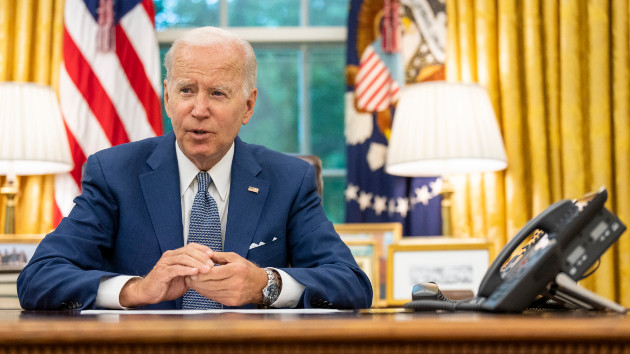
(WEST PALM BEACH, Fla.) — The DOJ and lawyers for former President Donald Trump faced off in a Florida court Thursday on whether there should be a special master review of the documents seized at Mar-a-Lago.
Lawyers for the Justice Department and former President Donald Trump faced off in a Florida courtroom Thursday over whether there should be a judge-ordered independent review of the documents the FBI seized last month at his Mar-a-Lago estate.
Trump’s lawyers had said the third-party review was needed to deal with matters involving potentially privileged materials, including both attorney-client and executive privilege.
But the Justice Department has said a previously-established “filter team” has already finished its review of potentially attorney-client privilege materials that were seized in the raid. They have also urged Judge Aileen Cannon to reject any claims by Trump of executive privilege over the items, noting that his status as a former president means he has no right to continue to possess the documents.
At the end of Thursday’s hearing, Judge Cannon said she would not be ruling from the bench and would enter a written order in due time. She did not give a timeline.
But she indicated she is seriously considering appointing a “special master” to review the documents seized from Trump’s Mar-a-Lago club, an order that would put on hold investigators’ review of the materials.
Cannon, a federal judge nominated by Trump, indicated that if she were to appoint a special master it would not have an impact on the current ongoing assessment by the intelligence community.
The judge asked to hear from one of the lawyers on the government’s filter team that has already gone through the documents. The filter team has not shared what it has deemed to be potentially privileged with investigators.
During the arguments, Trump lawyer Jim Trusty equated Trump’s refusal to return documents to the National Archives and Records Administration to an “overdue library book,” adding that the ongoing dispute with the Archives “has been transformed into a criminal investigation.”
Christopher Kise, who was just recently added to Trump’s legal team, referenced the “significant lack of trust between the parties” and said that the “temperature is very high,” telling the judge that there is a “public lack of faith” in the Justice Department and “real or perceived lack of transparency.”
“We need respectfully to lower the temperature of both sides. We need to take a deep breath,” Kise told the judge.
“This is not a case about some Department of Defense staffer stuffing military papers” in a bag and sneaking out in the middle of the night, Kise said, arguing the documents Trump had in his possession were presidential records in the possession of the president of the United States.
Justice Department lawyer Jay Bratt took issue with that, saying , “He is no longer the president and because he was no longer the president he did not have the right to take those documents.”
“They aren’t his,” Bratt said, referring to the seized documents.
“They have put forth no evidence that there was any disregard for the former president’s rights,” Bratt said.
He told the judge the appointment of a special master would hinder their investigation. He said that doing so could give people access to the documents who didn’t have a right to see them — in other words, back in the hands of the former president.
Bratt said investigators would have no idea where they would be stored and the documents would be given back to people who don’t have the right to access them.
Copyright © 2022, ABC Audio. All rights reserved.









